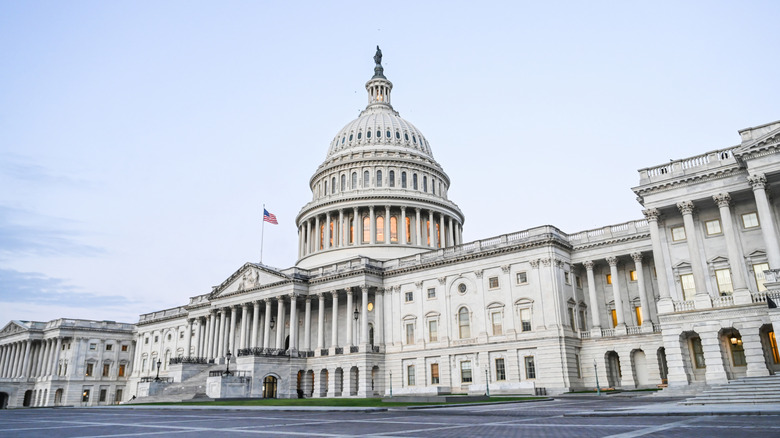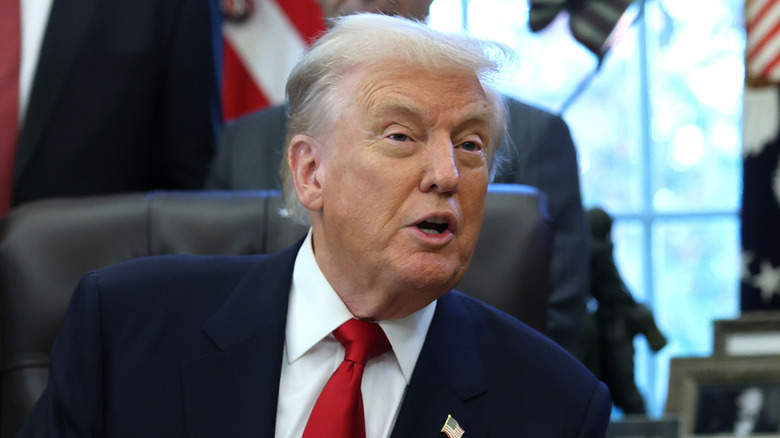The Financial Protection Agency That Could Run Out Of Cash In 2026
The Trump administration has declared that the Consumer Financial Protection Bureau (CFPB), the federal agency tasked with protecting Americans from unfair and deceitful actions by banks, lenders, and other financial entities, will run out of money by early 2026. The move comes at a time when aggregate household debt reached $18.6 trillion as of the third quarter of 2025 (per a Federal Reserve Bank of New York report) and America's average FICO credit score is falling.
According to a November 2025 filing with the District of Columbia's U.S. Court of Appeals by the Department of Justice (DOJ) Office of Legal Counsel, the CFPB should have enough funds to operate until at least December 31, 2025. But after that, the agency will no longer be entitled to getting new money, since the entity that funds it — the Federal Reserve — is operating at a loss.
Under the Dodd-Frank Act of 2010, the Federal Reserve provides funding as requested by the CFPB director from its "combined earnings." However, the DOJ determined that further funding would be unlawful, since the Federal Reserve's expenses have exceeded its revenue every year since 2022. It's an argument that has been tried before by companies facing CFPB's civil actions, Politico reported, and it's so far been rejected by federal judges. An attempt to abolish the CFPB on constitutional grounds was also rejected by the U.S. Supreme Court in 2024, per the National Conference of State Legislatures (NCSL).
The CFPB has saved taxpayers billions. The Trump administration wants to end it.
Created in 2011, a year after the passage of the Dodd-Frank Act, the CFPB has collected more than $5 billion in civil penalties from companies that violated the law. Due in part to the agency's increased oversight of banks' NSF and overdraft fees, which has forced the institutions to change policies on these costly banking fees, Americans save about $6.1 billion a year, per CFPB.
But since Donald Trump was elected to his second presidential term, more cases against banks and other lenders have been dismissed, while regulations on bank fees have been rolled back. This rollback includes an end to the $1.95 trillion asset cap on Wells Fargo by the Federal Reserve, which has paved the way for the major bank's new $15 fee on checking accounts. In addition, $360 million in CFPB settlements are being reversed or altered by the agency's new leadership, USA Today reported.
Since his appointment by Trump in February 2025, the CFPB's acting director, Russell Vought, has declined funding from the Federal Reserve, sought to close the bureau's headquarters, and tried to fire 90% of its staff. An architect of Project 2025, a 900-page policy document that seeks to shrink the size of the federal government and increase the authority of the presidency, Vought is also the director of the Office of Management and Budget.

